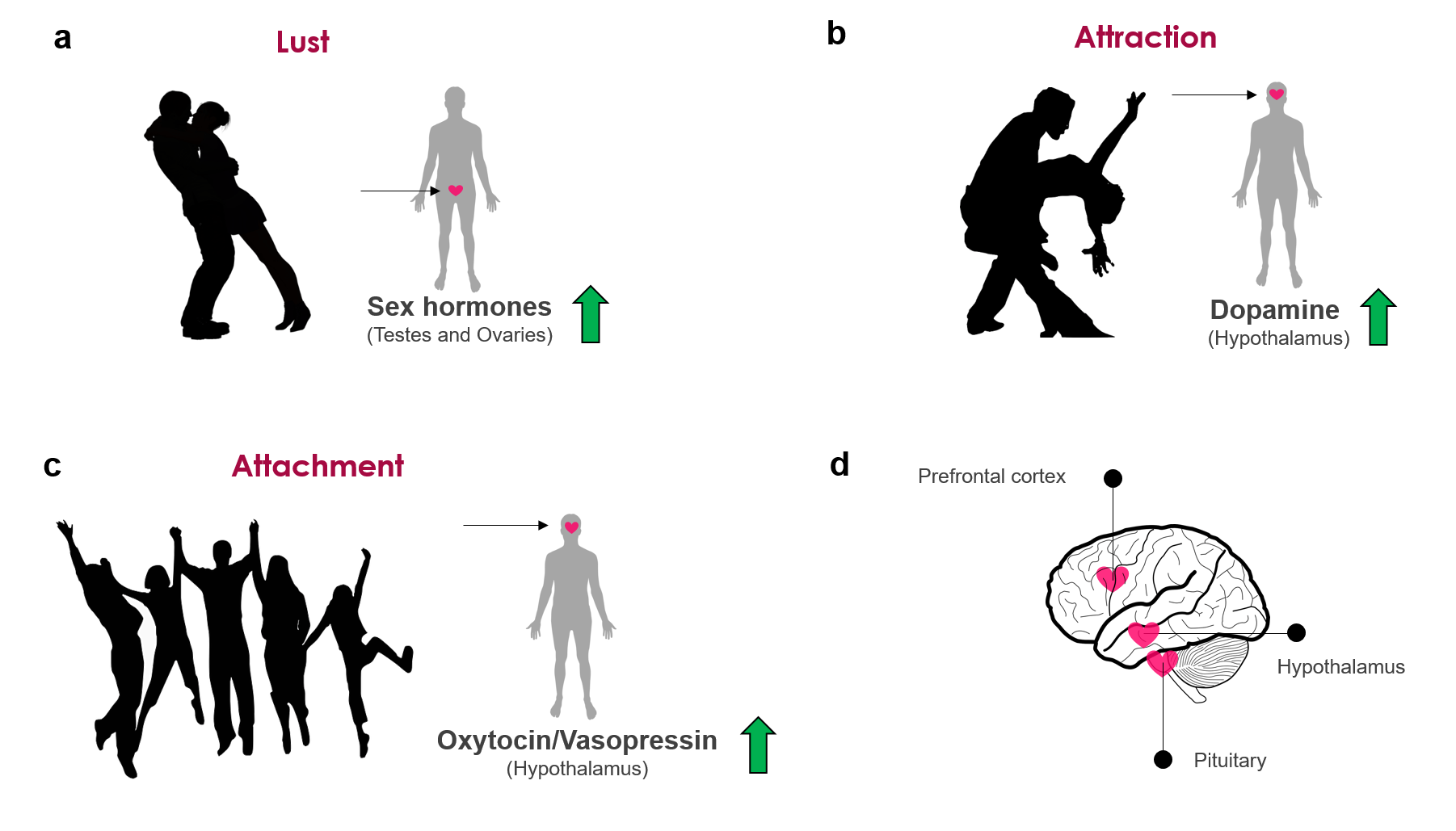What is love? While Bonnie Tyler would say it's a "total eclipse of the heart," the emotion is significantly more intricate than that.
Love is a feeling most people find difficult to put into words. Some would say it's a combination between comfort and affection, while others believe it goes beyond the depths of our subconsciousness. All I know is, it can't be defined by feelings alone.
Luckily, scientists specializing from anthropology to neuroscience have been researching that exact question for years, and may have finally found the answer.
But stop right there. Before we fall in love with someone, we have to find a partner we're attracted to, but how are we suppose to figure that out?
According to Your Amazing Brain, psychologists have proven it only takes between 90 seconds and 4 minutes to determine if you are attracted to someone. Oddly enough, the mitigating factor isn't the words that are exchanged.
According to their research, there are only three components that contribute to someone becoming attracted to someone else: 55% is through body language, 38% is the tone and speed of an individual's voice, while the remaining 7% doesn't go towards what the individual has to say.
But just because you've found someone you're attracted to, it doesn't mean you're instantly in love. It takes time, and another three steps.
Helen Fisher of Rutgers University has formulated a widely popular list, depicting the three stages of love - lust, attraction, and attachment. Like a video game, you must complete one level before you can advance into the next. While they're all similar to the naked eye, each stage is composed of varying hormones and chemicals.
1. Lust
The first stage is driven by the sex hormones testosterone and estrogen. Contrary to popular belief, women have testosterone hormones, which play a major role in their sex drive. Lust is solely based on physical attraction.
2. Attraction
When you reach the second "love struck" stage, your brain is faced with three neuro-transmitters: norepinephrine (otherwise known as adrenaline), dopamine, and serotonin.
During the initial stage of falling in love, your stress responses become activated, which increase the levels of norepinephrine and cortisol. If you ever wondered why you started to sweat, have gotten a racing heart, or a dry mouth, now you know - you were in love.
Dopamine - a neuro-transmitter that can also be caused by cocaine or nicotine - makes you feel amazing because it stimulates an intense rush of pleasure, whenever you see your new beau. Beware, dopamine can also cause a decrease in appetite and insomnia, so make sure you get your beauty sleep and eat those three square meals a day.
When you're in love, you also begin to have less serotonin in your body, which can trigger obsessive thinking. During this phase your partner constantly pops into your mind, and can arguably turn you temporarily insane.

3. Attachment
Finally, we've reached the third and final stage: attachment. Unlike lust and attraction, attachment cements your relationship with your partner, signally there is more than just mutual sexual attraction.
Once the love-dovey, "honeymoon" phase is over, there are two hormones that are now constantly released by the nervous system: oxytocin and vasopressin.
Oxytocin is a powerful hormone released during a man or a woman's orgasm, which deepens the feeling of attachment to a person, and makes you feel closer to your partner after sex. The more often you're intimate with your partner, the likelihood of you having a stronger relationship is heightened.
After a romantic tryst, couples will release vasopressin, which works with your kidneys to control your thirst. Its role in relationships was discovered when scientists took a look at the prairie vole.
In an experiment, the male prairie vole was deprived of vasopressin, the bond the male had with his partner immediately deteriorated. Their devotion to their lover vanished and they didn't mind when their partner went off with a new suitor.
Now you know about the 'science of love,' the final question is, have you ever felt it?






